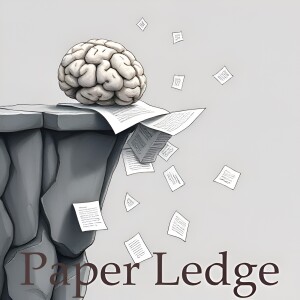

Computation and Language - AgentFold Long-Horizon Web Agents with Proactive Context Management
Hey learning crew, Ernis here, ready to dive into another fascinating paper that could change how we interact with AI! Today, we're tackling a challenge that's been bugging researchers in the world of AI web agents – specifically, how these agents remember and use information over long periods.
Imagine you're trying to bake a complicated cake following an online recipe. You're constantly scrolling back and forth, trying to remember if you added the sugar or not. That's kind of what's happening with current AI web agents.
These agents, often built on something called ReAct, are amazing at finding information online and completing tasks. But they have a memory problem. They tend to just pile up all the information they encounter, creating a huge, messy "memory log." This is like trying to find that one specific ingredient in a kitchen overflowing with clutter. It gets slow, confusing, and ultimately, they make mistakes.
On the other hand, some agents try to solve this by summarizing everything constantly. This is like throwing away ingredients you think you don’t need, only to realize halfway through the recipe that you actually needed that weird spice! They lose important details forever.
- Problem 1: Agents' memory gets cluttered with irrelevant information.
- Problem 2: Agents lose crucial details when summarizing too aggressively.
Now, here's where the cool part comes in. The researchers behind this paper came up with a clever solution called AgentFold. Think of it like a master chef who knows exactly what to keep, what to toss, and how to organize the kitchen for maximum efficiency.
AgentFold is inspired by how we humans remember things. We don't just record everything that happens. We actively manage our memories, focusing on the important bits and consolidating the rest. AgentFold does the same for AI agents.
At each step, AgentFold decides how to "fold" its memory. It can:
- Granular Condensation: Keep the really important details, like the exact temperature for baking a specific pastry.
- Deep Consolidation: Summarize entire sub-tasks, like "Mixed dry ingredients," so the agent doesn't have to remember every single step involved.
It's like having a dynamic, actively managed cognitive workspace instead of a passive memory log.
“AgentFold treats its context as a dynamic cognitive workspace to be actively sculpted, rather than a passive log to be filled.”
So, what were the results? They're pretty impressive! The researchers trained AgentFold (specifically, a version called AgentFold-30B-A3B) and tested it on some tough web browsing tasks. It blew away the competition, even outperforming much larger AI models, including proprietary systems like OpenAI’s o4-mini! This shows that intelligent memory management is often more effective than just throwing more computing power at the problem.
Specifically, AgentFold achieved 36.2% on BrowseComp and 47.3% on BrowseComp-ZH. To put it in perspective, it's like going from barely passing a test to acing it simply by improving your study habits!
Why does this matter?
- For Researchers: This opens up new avenues for developing more efficient and capable AI agents without relying solely on massive models.
- For Developers: This offers a practical approach to building AI assistants that can handle complex tasks requiring long-term memory.
- For Everyone: Imagine AI assistants that can truly understand your needs and preferences over time, helping you with everything from planning a vacation to managing your finances more effectively.
This research highlights that smart memory management is crucial for AI agents to truly excel. It's not just about having a big brain; it's about knowing how to use it effectively!
So, a few questions that popped into my head while reading this:
- Could AgentFold be adapted to other types of AI, like those used in robotics or autonomous driving, where remembering past experiences is critical?
- How can we ensure that the "folding" process doesn't inadvertently filter out information that's important but not immediately obvious?
- What ethical considerations arise when AI agents can selectively remember and forget information, potentially leading to biased or manipulative behavior?
That's all for today's deep dive! I hope you found AgentFold as fascinating as I did. Let me know your thoughts and questions in the comments below. Until next time, keep learning and keep exploring!
Credit to Paper authors: Rui Ye, Zhongwang Zhang, Kuan Li, Huifeng Yin, Zhengwei Tao, Yida Zhao, Liangcai Su, Liwen Zhang, Zile Qiao, Xinyu Wang, Pengjun Xie, Fei Huang, Siheng Chen, Jingren Zhou, Yong Jiang
More Episodes
All Episodes>>Create Your Podcast In Minutes
- Full-featured podcast site
- Unlimited storage and bandwidth
- Comprehensive podcast stats
- Distribute to Apple Podcasts, Spotify, and more
- Make money with your podcast












